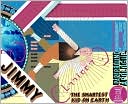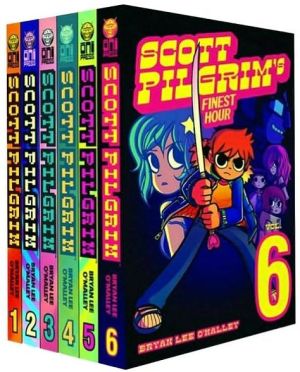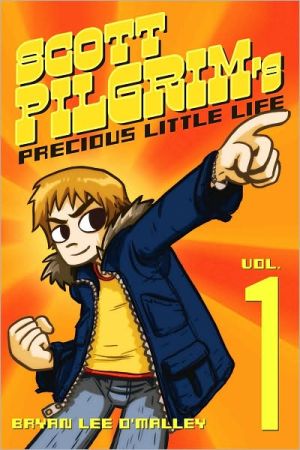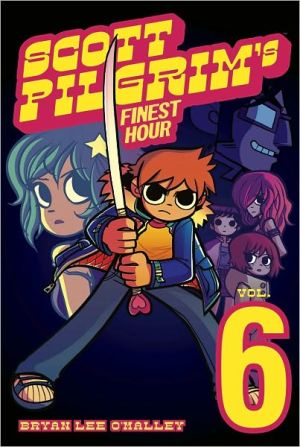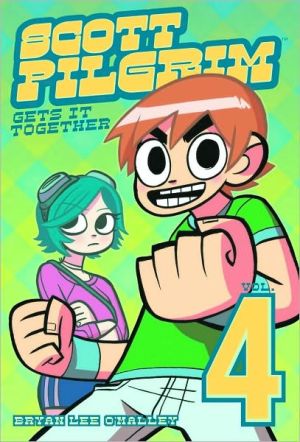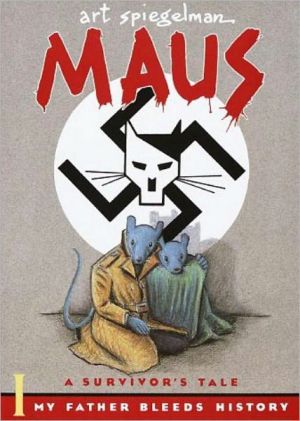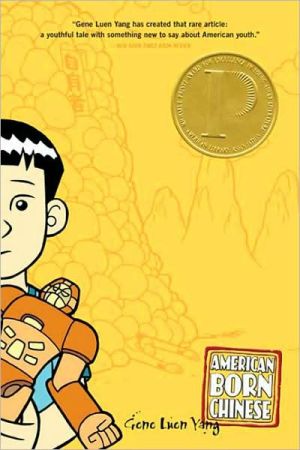Jimmy Corrigan: The Smartest Kid on Earth
Search in google:
This first book from Chicago author Chris Ware is a pleasantly-decorated view at a lonely and emotionally-impaired "everyman" (Jimmy Corrigan, the Smartest Kid on Earth), who is provided, at age 36, the opportunity to meet his father for the first time. An improvisatory romance which gingerly deports itself between 1890's Chicago and 1980's small town Michigan, the reader is helped along by thousands of colored illustrations and diagrams, which, when read rapidly in sequence, provide a convincing illusion of life and movement. The bulk of the work is supported by fold-out instructions, an index, paper cut-outs, and a brief apology, all of which concrete to form a rich portrait of a man stunted by a paralyzing fear of being disliked.Book MagazineComic books are just kids' stuff, aren't they? Superheroes and flying saucers and jug-eared kids making nuisances of themselves. In fact, there are adult emotions at work in the best of today's graphic novels, as the grown-up version of the genre has been dubbed. It's an alternative world, one characterized by profound melancholy, offering a different kind of escapism than is typically associated with comic books. The simultaneous publication of two recent graphic novels, Chris Ware's Jimmy Corrigan: The Smartest Kid on Earth, the collected tales of the author's pitiable protagonist, and Daniel Clowes' David Boring, another collection about another neurotic young man by the author of Ghost World, marks a significant milestone in the art of the comic book. For one thing, both books come in hardcover. That's just the most obvious of their many departures from comic-book tradition. In the elegant hands of Ware and Clowes, probably the two most celebrated alternative-comics artists of recent years, the mundane lives and fanciful dream states of their alter egos inspire new combinations of poetry and storytelling. Ware, who has been publishing his serialized Jimmy Corrigan stories for several years now as part of the Acme Novelty Library—a series of outsize, painstakingly detailed comic books—was discovered by Art Spiegelman, the comic artist who gave the form an unprecedented respectability when he won the Pulitzer Prize for his Holocaust family history, Maus. The title character, Corrigan, a thirty-six-year-old man-child who stumbles through an ill-fated meeting with his long-estranged father, is the product of severalgenerations of unfulfilled men. Flashbacks to Corrigan's grandfather's Chicago childhood give the author ample opportunity to explore one hundred years of the city's changing face, from the magnificent 1893 World's Fair to the high-rise offices of today. Ware, who structures his narrative in ways that invoke old advertisements or the dialogue cards of silent movies, clearly has little use for the modern world. With the inevitable effects of the march of progress "come new ways of hiding things, and new things to hide," Ware writes in one touching sequence that depicts the grandfather Corrigan playing hide-and-seek as a boy. Pale and pear-shaped, Corrigan has hollow eyes that give him the skittish look of a neglected mutt living in fear of the rolled-up newspaper. Curiously, Corrigan's chronic lack of confidence is wholly betrayed by the author's thick, woodcut-like lines, which are absolutely self-assured. Ware's are some of the most beautiful pictures ever seen in comic books. In a meticulous apology printed on the back pages of the book, Ware expresses his (needless) regret that his literary techniques don't do justice to his semi-autobiographical tale. When he met his real father some years ago, he writes, he was relieved to find that the man was unfamiliar with the Corrigan comics—"the invisible and universally unfashionable world of the comic strip having left me thankfully unread." Utterly in spite of himself, Ware is making comic-book art very fashionable indeed. So too is Clowes, whose Ghost World, the rambling, seemingly inconsequential dialogue of two disaffected young women, is being made into a feature film (by Terry Zwigoff, who directed Crumb, the extraordinary documentary based on the odd life of the underground comics artist R. Crumb). Like Ware, Clowes tells the story of a timid young man whose real life is no match for his interior world. Unlike Corrigan, Clowes' character is obsessed with the opposite sex, and he acts on his obsessions. And his nostalgic tendencies plumb a slightly more recent America, one of 1950s diners and 1960s apartment complexes. Contrary to his name, Boring's escapades include a handful of shootings, a drowning and other tragedies. Like Ware, Clowes has an ability to capture ephemeral feelings with keen combinations of words and pictures. In a narrative on "the first really warm day of spring," the title character notes, "the streets are quiet and a lot of businesses are closed because of some obscure religious holiday, and I am buoyed by the innate human confidence that comes with fair weather." The close reader can really feel the short-sleeve weather in the accompanying suburban street scene. It's an achievement that is unmistakably literary in its execution. Of course, the comic-book authors of today grew up reading the classic comic books of yesterday. Both of these new books make cryptic references to Superman, the red-caped superhero who made so many anxious young lives more bearable with his invincible exploits. In his despair, the hero-less Jimmy Corrigan catches glimpses of a fellow in a Superman outfit, toppling from skyscraper ledges. And David Boring searches for clues from his own estranged father, a free-lance comic artist who once drew an issue for the "S____" series. Subtle as it is, the work of these two young talents can be more powerful than a locomotive. Few examples of modern literature can leap so many tall buildings in a single bound. —James Sullivan
